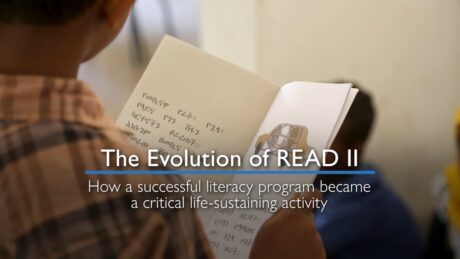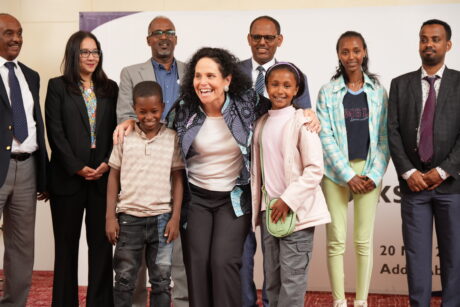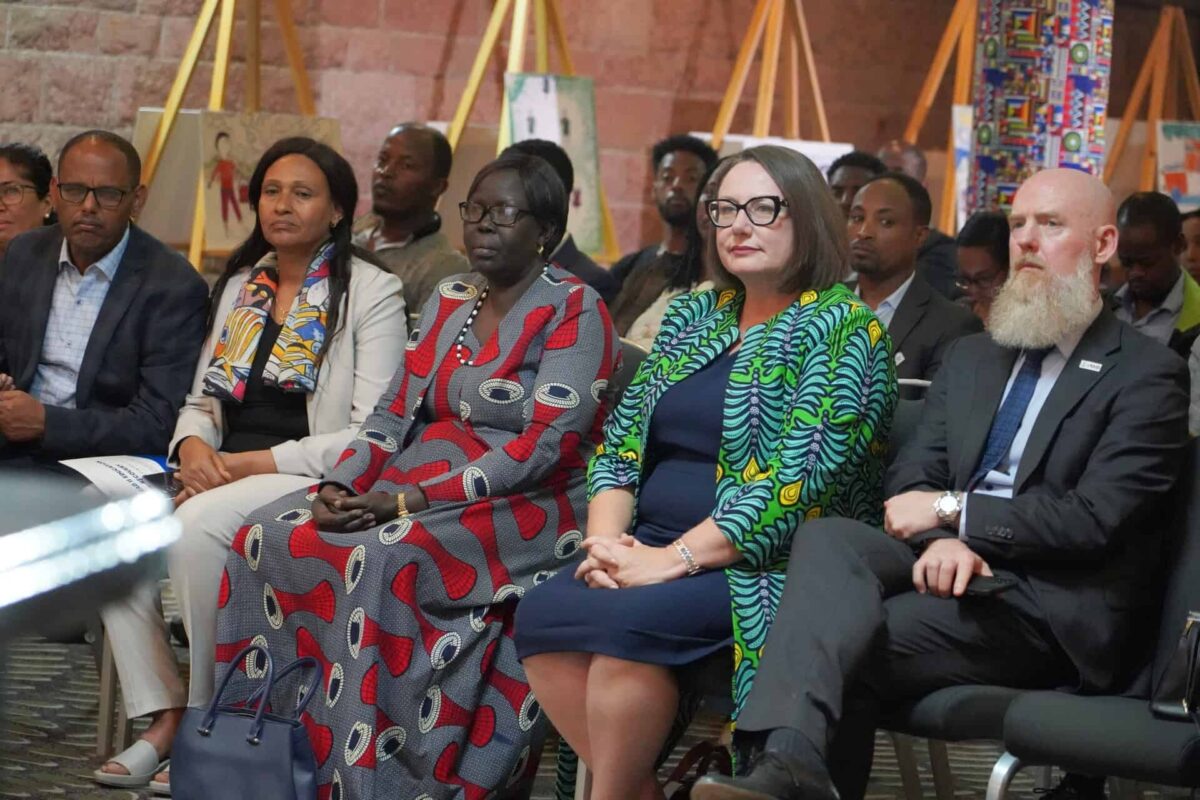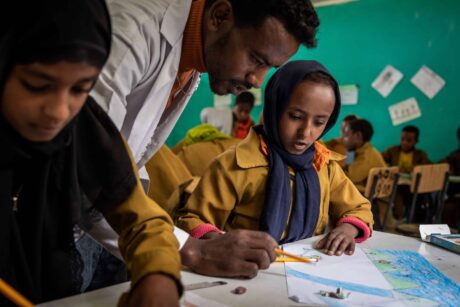After months out of the classroom, sixth–grader Netsanet Nigussie resumed her lessons at Gonbat Primary School in the fall. Getting back to school was a welcome return to routine — with a few new changes.
“Our teachers told us, again and again, the things we should do to protect ourselves from the COVID-19 pandemic,” she says. “They have told us to wash our hands at the gates of the school when entering the school compound. It is mandatory to wear masks whenever we’re in the school compound and even on our way to and from school.”
These COVID-19 precautions are the new normal for 20 million primary school students across Ethiopia. The safeguards follow national school reopening guidelines, which the Ministry of Education drafted with inputs from READ II senior technical staff. Implementing these strict hygiene and social distancing guidelines was one of many challenges that school administrators and educators have faced over the past several months.
“The nationwide shutdown of schools following the COVID-19 pandemic was a massive crisis to the school community,” says Fetene Alamire, the Gonbat School Director.
As schools cautiously worked to reopen in September, the USAID READ II Activity helped prepare school leaders like Alamire to address the pandemic’s health concerns and ease other COVID-19 repercussions of the pandemic on their students. More than 3,800 school directors and cluster supervisors — who oversee several schools — completed the training. As schools began to reopen in phases across the country, they passed the lessons along to teachers and other school staff.
For Cluster Supervisor Genet Nahusenay, the reopening of the three schools he oversees in the Amhara region was one of his biggest challenges during his 22-year career. The READ II training helped him guide the schools through the process while keeping the wider communities healthy.
“Based on the skills and understanding we got from the training and the guidelines we were provided with, we have put in place all the necessary precautions aimed at protecting the school community from the COVID-19 pandemic to the greatest extent possible,” Nahusenay says.
Family outreach to prevent dropout
For many students, the challenge of returning to class starts well before they reach the school grounds. COVID-19’s economic fallout pushed many families to rely more heavily on their children to generate income, particularly farmers in rural areas. Now accustomed to their children’s assistance, some families have been reluctant to let them return to school.
READ II mobilized more than 7,400 trained volunteers — the community literacy leaders who facilitate the program’s reading camps — to conduct a back-to-school campaign in the communities. The program prepared another 4,600 advocates from parent-teacher-student associations and local education and training boards to communicate with parents about their role to get kids studying again.
For young people — especially adolescent girls — in the region, rising poverty during the pandemic increased the risk of child marriages, according to a report by UNICEF. In communities near Gonbat Primary School, Alamire counted 15 families that had arranged marriages for their children — mostly girls, but a few boys too — over the past several months. READ II’s training for school leaders gave special attention to reaching these families.
“We were able to return 12 of them to school,” Alamire says. “The training we had helped us to be ready for this. In consultation with the school Gender Club and the Kebele (community government) administrators, as well as discussion with parents and students affected, we were able to convince them to return to school.”
Refocusing on learning
Back in class, educators had to ensure students came back ready to learn. This meant not only leading effective and engaging lessons but also taking steps to address the pandemic’s impact on students’ wellbeing.
The READ II back-to-school training emphasized psycho-social support and social-emotional learning. Participating educators learned about what causes stress and how stress can become a barrier to learning. They learned how to identify and reassure students who are experiencing fear or anxiety due to the pandemic. To ensure schools are a safe place for all students to learn, the training reinforced how to recognize, prevent and address school-related gender–based violence.
At Merawi Primary, School Director Gebeyaw Limenih says these tools are helping students get back into their learning routine and improve their performance in the classroom.
“We have been grateful for the support. READ II has been a success here, and recently the trainings on how we can support our students during and after the reopening of schools has given us a wide range of useful skills and understanding,” Limenih says. “I hope by employing these skills and knowledge, we will support them through this difficult time.”



